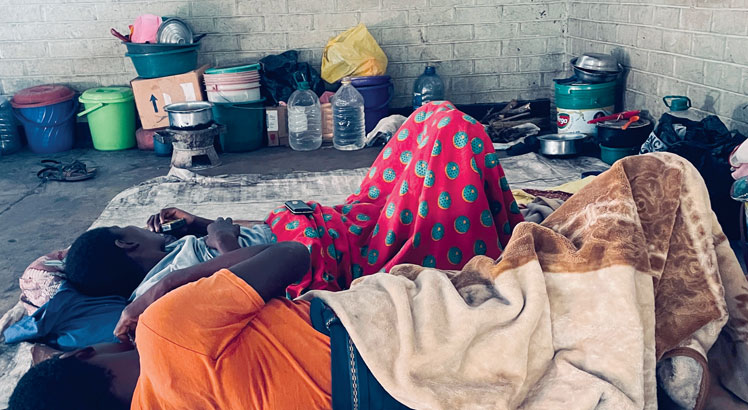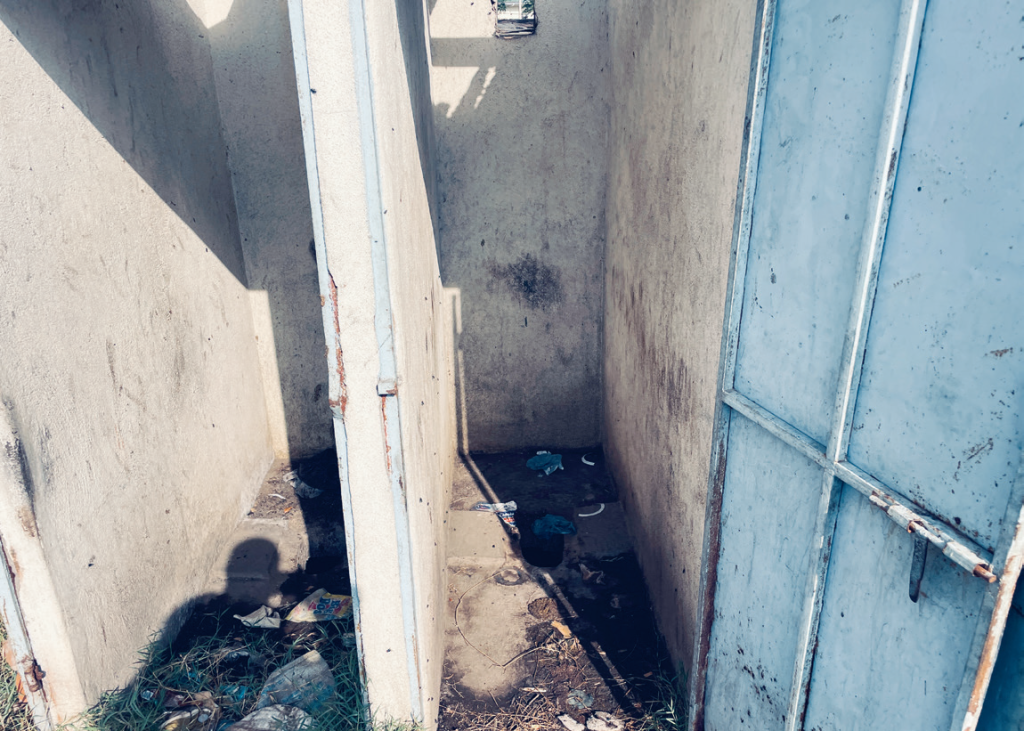Cancer women living in shadows of shelter
Princes Chitsulo’s melody of Mavutowa akazangotha drifts gently through the stale air of a ramshackle shelter, its rusted roof leaking during rain and its walls discoloured with mildew. Here, just a stone’s throw from the bustling Queen Elizabeth Central Hospital (Qech), four women are trading the agony of cancer treatment for the agony of survival.
This forgotten shelter barely deserves its name. The floor is a patchwork of cracked cement and dirt, where thin plastic mats serve as beds. Makeshift windows covered in plastic do little to keep out the biting cold. A single, foul-smelling pit latrine, shared by over a dozen patients and their guardians, threatens to collapse at any moment.
This is the temporary home of Eneless Mapanga (56) from Machinga, Stella Alfred (54) from Balaka, Esinat Thomasi (37) from Phalombe, and Ethel Chisuse (40) from Chikwawa. Three of them are battling cervical cancer.
Their treatment schedules require monthly hospital visits, a journey so costly that they’ve made an impossible choice: sleep here, under unsafe and unhygienic conditions rather than spend money on transport they cannot afford. For them, survival demands sacrifice.
For Esinat Thomas, a mother of six from Chande Village, Traditional Authority (T/A) Nkanda in Phalombe District, cancer changed her life.

After many doctor visits in two years without a diagnosis, she was finally diagnosed with cervical cancer earlier this year. Doctors advised her to start treatment soon after.
“They said my uterus was swollen and I needed medication to shrink it, recommending me chemotherapy.
“Since then, I have been a regular patient here. My treatment is on a monthly basis and sometimes I stay at the shelter for weeks to await the next one because I cannot afford travel costs for me and my 14-year-old daughter.”

But life at the guardian shelter is not pleasant.
“We came here to save our lives, but this place is draining what’s left of our dignity,” says Esinat, her voice hoarse from radiation side effects. “Sometimes I wonder if dying at home would have been easier.”
Their days begin with hospital queues and end with restless nights, mosquito bites, hunger pangs and shared tears.
They cook over open fires outside the shelter—if they have food—and take turns keeping watch over each other at night, fearing for their safety.
And yet, despite the hardship, these women hold on—not just to life, but to hope.
The first thing you notice when you enter the shelter isn’t the cracked floor or the smell of damp clothes hanging from frayed strings across the room—it’s the sound.
A soft gospel song plays from a small keypad phone resting on a torn pillow near the door. As Mavutowa akazangotha continues to play from a phone, a fragile thread of comfort weaves into the harshness of the space.
The phone belongs to Esinat, who presses buttons, wrapped in a faded chitenje and listens with closed eyes, drawing strength from the familiar words.
“I listen to this every morning to remind myself I’m still alive,” she says with a weak smile. “Some days, that’s all I need to make it to the hospital.”
The walls are stained and cracking, with pieces of cardboard shoved into holes to block the wind. Cockroaches scatter as you move closer. There is no electricity, just pain shared in silence.
The battle within
Beyond the shelter’s crumbling walls and harsh living conditions lies an even deeper battle fought inside the very bodies of the women who live here.
Chemotherapy is not just a treatment; it is a relentless test of endurance.
After each hospital visit, Ethel Chisuse returns to her mat shaking, not from fear, but from the cruel side effects.
Her body rejects food, her mouth burns from ulcers and her once-thick hair clings to her scarf in quiet defeat.
“Sometimes I vomit the whole night,” she says softly, her voice cracking. “My bones feel like they are breaking from inside. I cry, but I don’t even have the strength to wipe my own tears.”
For Stella Alfred, 54, from Chilanga Village T/A Mkaya in Balaka, the side effects have stolen more than her strength—they’ve stripped her independence.
Once a farmer, she now relies on her 35-year-old sister to walk her to the hospital and help her bathe.
Her hands tremble constantly, her skin is bruised and fragile.
“Chemotherapy kills the bad cells, yes,” she says, “but it feels like it’s killing the rest of me too.”
For Esinati her daughter suffers alongside her ailing mother.
“She left school to care for me here. She was in Standard Four. This disease has not only robed my health, it has also robed her right to becoming a nurse like she has always wanted” she sobs.
Even rest offers no refuge. Sleep is shallow; disturbed by pain, fever, or the fear that tomorrow might bring worse.
With no nurse nearby or emergency button, the women rely on each other—comforting, watching and surviving.
A system’s silence
In Malawi’s public hospitals, chemotherapy is often a waiting game—hours of queues, medication shortages, and unpredictable schedules.
Esinat recalls a day she had fasted and walked to the hospital in pain, only to be told the drugs had run out.
“I collapsed on the way back,” she remembers. On another visit, she was sent back because she was malnourished. “They gave me chiponde [peanut butter] to eat, but my son sold it to buy us food,” she laments.
They say cancer is a lonely illness, but for these women, it’s worsened by poverty, distance and systems that forget the people at the centre of the disease.
Still, they cling to hope. Not because they see change coming, but because they have no other choice.
Esinat still plays Mavutowa akazangotha every morning, whispering the lyrics as if they are a lifeline.
She tells her daughter stories in the afternoons, smiling despite the tears in her joints.
Ethel, on better days, sweeps the shelter with a hand-made broom—trying to make it feel less like a place people come to die.
“Maybe our stories will be heard one day,” says Caroline Mchoche, guardian to Mapanga. “Maybe someone will care.”
Until then, they live. They wait. They fight—not just the cancer, but everything that comes with being sick, poor, and invisible.
Amidst the despair, a glimmer of hope exists. Organisations like Heart of Mercy have become a lifeline for patients and guardians stranded at Qech.
Led by its managing director, Gershom Mwafulirwa, the charity provides food, basic necessities, and sometimes transport for those who cannot afford to return home.
Mwafulirwa said the organisation was founded on the belief that no one should endure additional suffering simply because of poverty while seeking medical care.
Through donations and volunteer efforts, Heart of Mercy not only eases people’s daily struggles, but also restores a sense of dignity and hope to families facing their darkest moments.
Efforts to speak to Qech director and deputy director proved futile as both did not pick their calls or respond to our texts.
As the Principal Secretary of the Ministry of Health, Dr. Samson Mndolo, and other officials remained unreachable, Cancer Survivors Quest executive director Chikhulupiliro Ng’ombe affirmed that the situation is “not good for cancer patients whose immune system is already weak.
” He noted that patients face challenges with nutrition, transport, poor side-effect management, and a lack of support groups, highlighting a broader need for improved universal healthcare.





